Discover the Elite Passports of the World – Ranking the World’s Influential Passports of 2024
- Key Takeaways
- The Powerful Passports in 2024
- Visa-Free Access: The Key to Global Mobility
- Analyzing the Passport Index Methodology
- Regional Passport Strength: A Comparison
- Top European Passport
- Top Caribbean Passport
- The Role of Economic Power in Passport Rankings
- Future Trends in Passport Power and Global Mobility
- Tips for Enhancing Your Passport's Power
- Summary
- Frequently Asked Questions
Which passports of the world grant the most freedom in 2024? This direct comparison reveals the top-performing passports, assesses the factors fueling their ranking, and suggests strategies to maximize your passport’s potential. Prepare for a concise guide to the planet’s most powerful travel documents, from Europe’s prized passports to the Caribbean’s rising contenders.
Key Takeaways
- Malta, Austria, and certain Caribbean countries with Citizenship by Investment Programs possess some of the most powerful passports in 2024, with visa-free access to over 190 destinations, signifying a strong correlation between passport power and a nation’s economic and diplomatic standing.
- The future of global mobility is likely to be influenced by diplomatic relations and foreign policy, which may enhance or restrict travel opportunities for citizens, while dual citizenship and Citizenship by Investment programs are practical avenues for individuals to increase the power of their passports.
The Powerful Passports in 2024
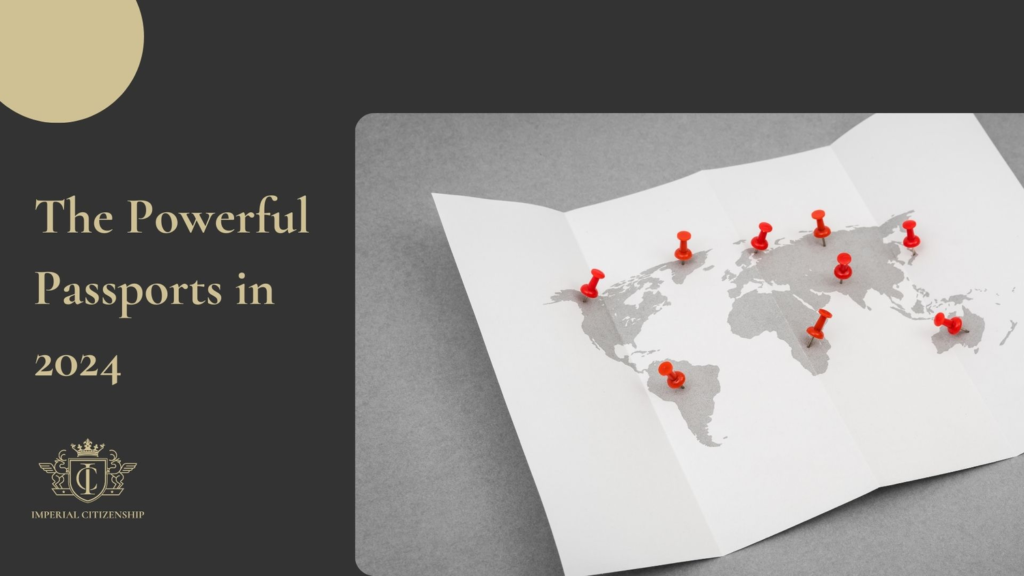
In 2024, Malta, Austria, and select Caribbean nations like Saint Kitts & Nevis they rank high in the Passport Index.These passports offer substantial benefits, granting visa-free access to over 190 destinations for Maltese and Austrian passport holders. While Caribbean passports may not reach the same level, they still provide access to over 150 destinations without the need for a visa.
Caribbean passports have notably improved their rankings, emerging as strong contenders among the world’s passports in 2024. Holders of these passports enjoy enhanced global mobility, similar to their Maltese counterparts.
These passports facilitate seamless travel, allowing holders to explore various countries without the hassle of visa requirements. With streamlined entry procedures and government-approved electronic visas, travelers can experience diverse cultures and economic opportunities worldwide.
Factors Influencing Passport Power
Passport power is subject to various influencing factors, which can fluctuate over time. One key determinant is political stability, as nations facing internal strife, violence, or challenges to state legitimacy often witness a decline in travel privileges. Instances of conflict or economic turmoil tend to weaken a country’s passport strength, underscoring the close connection between stability and travel freedom.
Moreover, diplomatic ties and socioeconomic conditions significantly impact a nation’s travel freedoms and global accessibility. These factors reflect a country’s strategic priorities and its engagement in international relations. While the type of government, such as democracy, may not directly correlate with passport strength, factors like income levels and overall societal stability exert a more significant influence.
Understanding these dynamics is crucial for assessing the passport power of nations across the globe. The Passport Index offers insights into the visa-free access and travel destinations available to passport holders worldwide. This index ranks passports based on their visa-free access to other countries and the number of destinations they can visit without a visa. Passports from countries like Malta or Austria often rank high on the index, reflecting their powerful status.
Additionally, the availability of government-approved electronic visas and electronic travel authorities further enhances passport power, facilitating hassle-free travel to a wide range of destinations. Countries with strong passports enjoy access to numerous travel destinations without the need for a visa on arrival or other entry restrictions.
Visa-Free Access: The Key to Global Mobility
Visa requirements introduce additional costs and uncertainties, potentially hindering the ease of global movement. By eliminating the need for visas, passports enable individuals to travel effortlessly across borders, unlocking opportunities for tourism, leisure, and business ventures.
The absence of visa requirements translates to savings in both time and money, benefiting businesses and bolstering the economies of participating countries. However, the onset of the COVID-19 pandemic precipitated a notable decline in global mobility, as evidenced by the World Openness Score (WOS), a metric that gauges changes in travel friction.
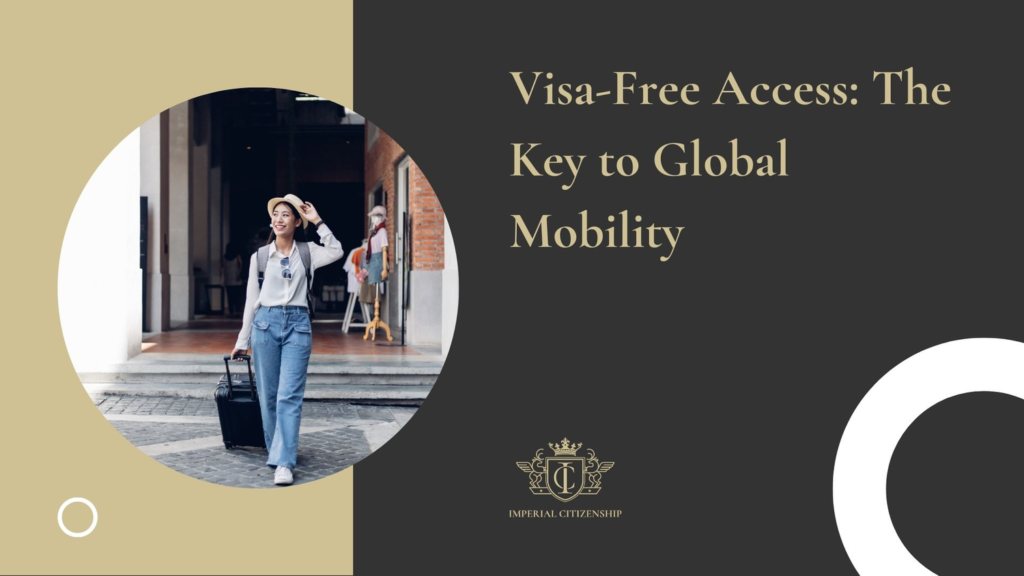
The WOS is instrumental in gauging the extent of global mobility and international openness. It underscores the importance of visa policies in shaping travel dynamics and emphasizes the need for strategies to restore and enhance global mobility in a post-pandemic world.
Introduced in 2015, the World Openness Score assesses the degree of openness among countries in terms of visa-free travel. This comprehensive tool continually monitors and reports on the levels of visa-free mobility worldwide. Prior to the pandemic, the WOS demonstrated a steady upward trajectory, reaching a record high of 21,360 visa-free travel options in 2019. However, the global health crisis led to a sharp decline, reducing the WOS to 12,944 out of a possible 39,601 travel options.
Analyzing the Passport Index Methodology
The Passport Index conducts a thorough evaluation of passports worldwide, primarily focusing on their visa-free travel options and the hospitality extended by countries to foreign visitors. The index encompasses 193 United Nations member countries and six territories, including ROC Taiwan, Macao (SAR China), Hong Kong (SAR China), Kosovo, Palestinian Territory, and the Vatican. Territories annexed to other nations, such as Norfolk Island (Australia), French Polynesia (France), and British Virgin Islands (Britain), are excluded from consideration.
The Passport Index employs a precise and comprehensive methodology to rank global passports, defining key terms as follows:
- Visa-free: Indicates no visa requirement.
- Visa on arrival: Denotes visas obtainable at the airport.
- e-Visa: Represents an online pre-application requirement.
- Visa required: Signifies the necessity to apply for a visa in person.
Methodology Overview
Passports are ranked based on their ,,total visa-free score” which assigns a point for each country where holders can enter without a visa, obtain a visa on arrival, or secure electronic travel authorization (ETA). A score of 1 is given when no visa is required, or entry is permissible with a visa on arrival, visitor’s permit, or electronic travel authority, while a score of 0 indicates a visa or pre-departure government-approved electronic visa (e-Visa) is mandatory. The passport with the highest visa-free score is deemed the most powerful.
During evaluation, passports are assumed to be normal (non-special or diplomatic), held by adult citizens traveling independently for short visits related to tourism or business, complying with necessary inoculations, and utilizing the same airport for both arrival and departure. The scoring assumes that the passport holder meets all basic entry requirements like hotel booking and sufficient funds, without complex requirements such as a government-issued invitation letter.
Regional Passport Strength: A Comparison
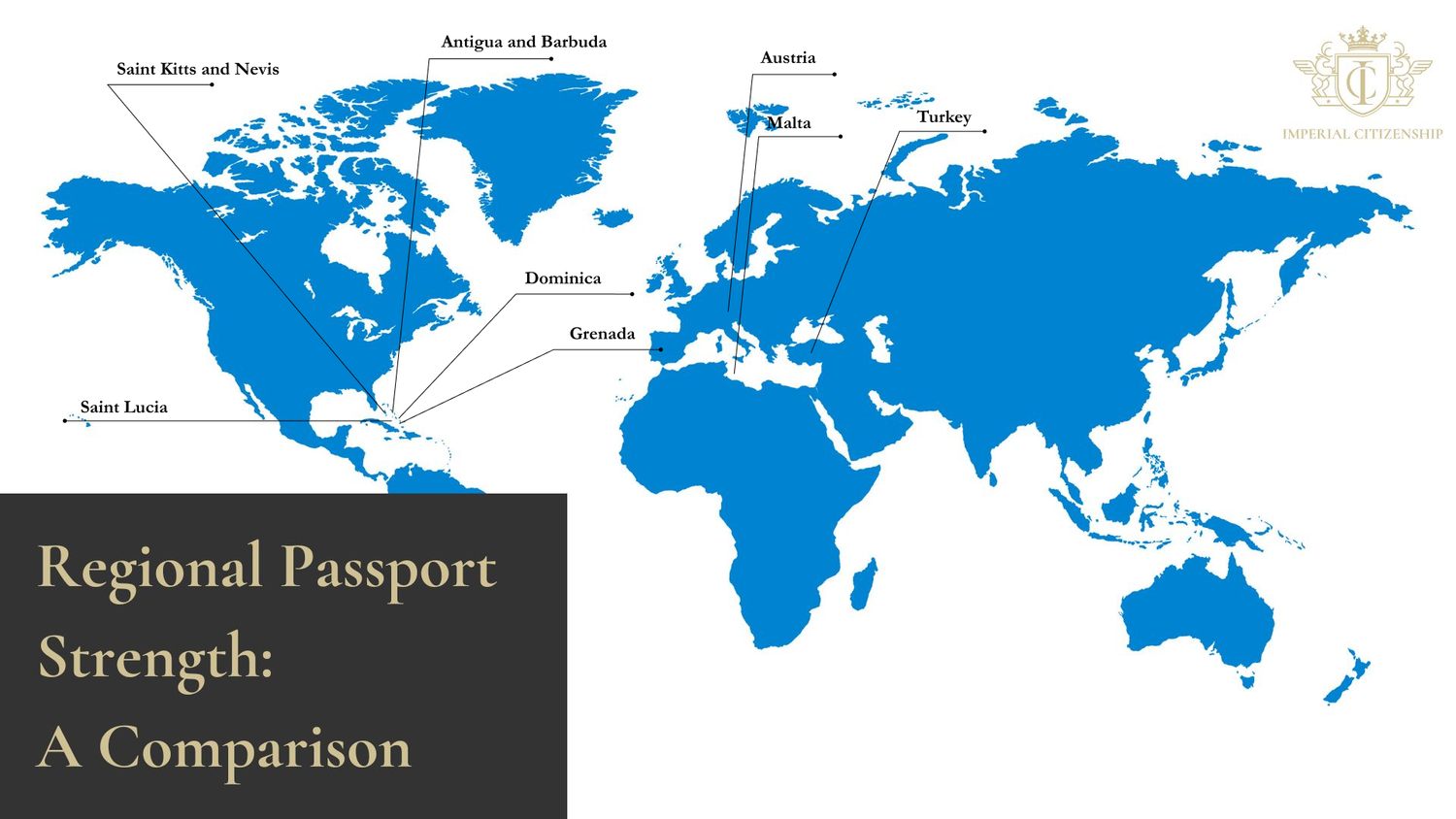
European passports dominate the upper echelon of the Global Passport Power Index, making them some of the most powerful passports in the world. In fact, they are considered among the world’s passports that offer the highest level of global mobility. Countries such as Malta, Italy, Spain, Portugal, France, Germany and Austria afford their citizens an impressive level of travel freedom. These passports bestow upon their holders an enviable level of access to tourism, business, and personal exploration in destinations like France, Germany, Italy.
Simultaneously, Caribbean nations, particularly those with Citizenship by Investment Programs, offer commendable mobility scores. Caribbean passports have seen significant improvements over the years, reflecting their growing economic stability and strategic diplomatic relationships.
Top European Passport
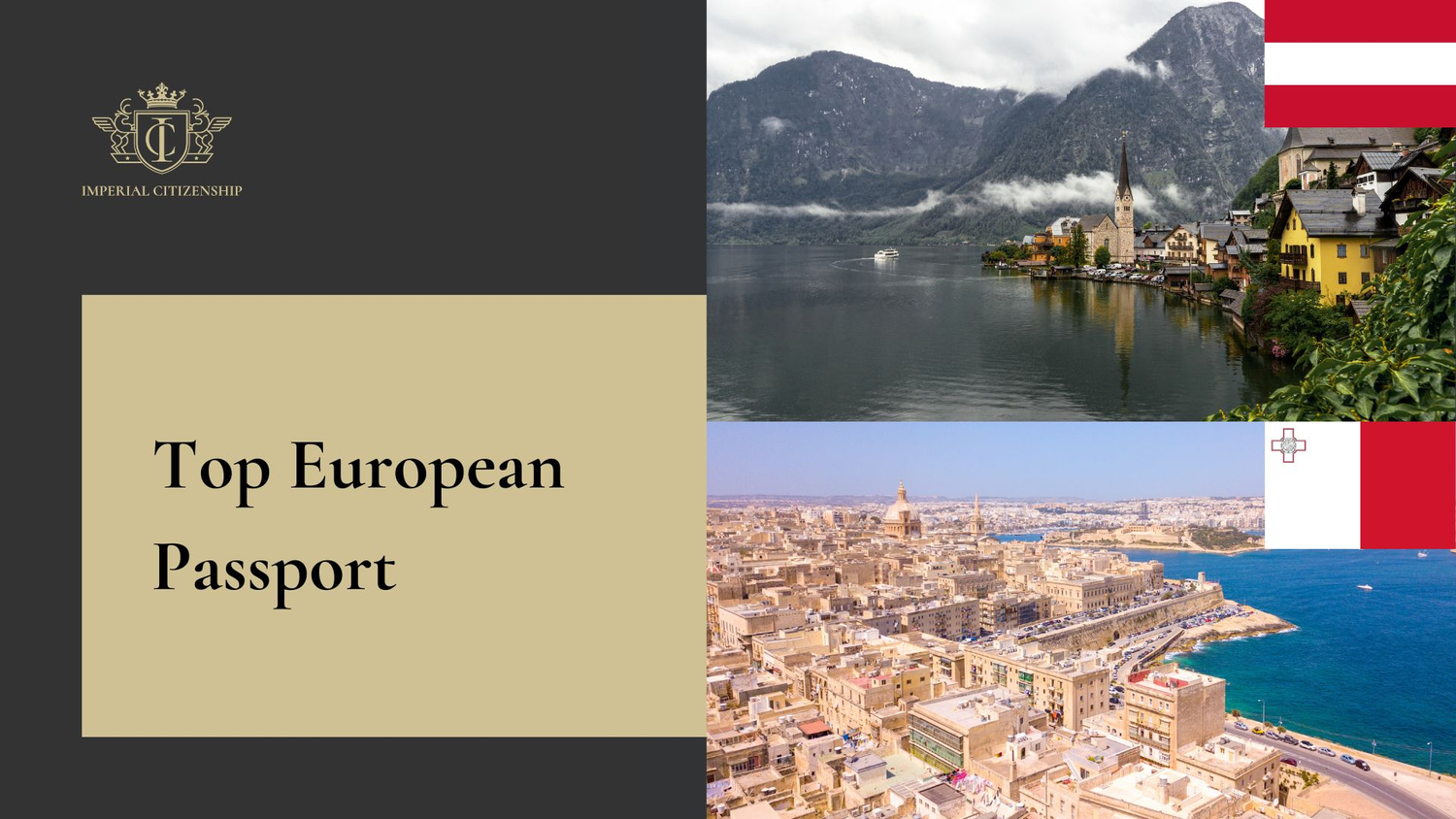
Let’s now focus on the top European passports, highlighting Malta and Austria. These passports are among the world’s most powerful, offering extensive visa-free travel opportunities and a bevy of benefits for their holders.
Malta passport holders
The Maltese passport, ranking 5th in the world, enables access to 190 countries without a visa. Maltese citizens can travel visa-free to countries including:
- Australia
- Canada
- Japan
- United States
They also have the option of traveling to how many countries? Well, there are 13 countries with an eVisa and 33 countries with a visa on arrival.
Moreover, Malta’s passport allows its citizens to enter several countries without a passport using only an ID card, mainly within the European Union. The passport’s power extends beyond Europe, permitting entry without a visa to African countries like South Africa and Mauritius, and to Asian territories such as Hong Kong and South Korea. European countries that allow Maltese citizens to enter with just an ID card include Italy, Spain, and Sweden.
Countries issuing eVisas to Maltese citizens include India, Russia, and Vietnam, facilitating online visa application processes.
Austria passport holders
The Austrian passport, another titan in the realm of global mobility, is ranked 3rd globally, granting visa-free access to over 190 countries. Austrian citizens enjoy visa-free or visa on arrival access to popular destinations such as:
- United States
- Canada
- Australia
- Japan
Austrian passport holders enjoy the privilege of being able to enter a number of countries using only an ID card, similar to Maltese citizens, within the European Union. They can travel visa-free to various countries across continents, including:
- the entire European Union
- Brazil
- South Africa
- Singapore
Austrian citizens can enter several countries with just an ID card, including all Schengen Area countries and other EU nations like Bulgaria, Croatia, and Cyprus.
Austria also has the advantage of being able to get eVisas for 19 countries, including Azerbaijan, India, Russia, and Vietnam, simplifying the visa application process for its citizens. Furthermore, Austrian citizens can obtain a visa on arrival in 30 countries, including Bahrain, Cambodia, Egypt, and Tanzania, allowing for easier travel to these destinations.
Top Caribbean Passport
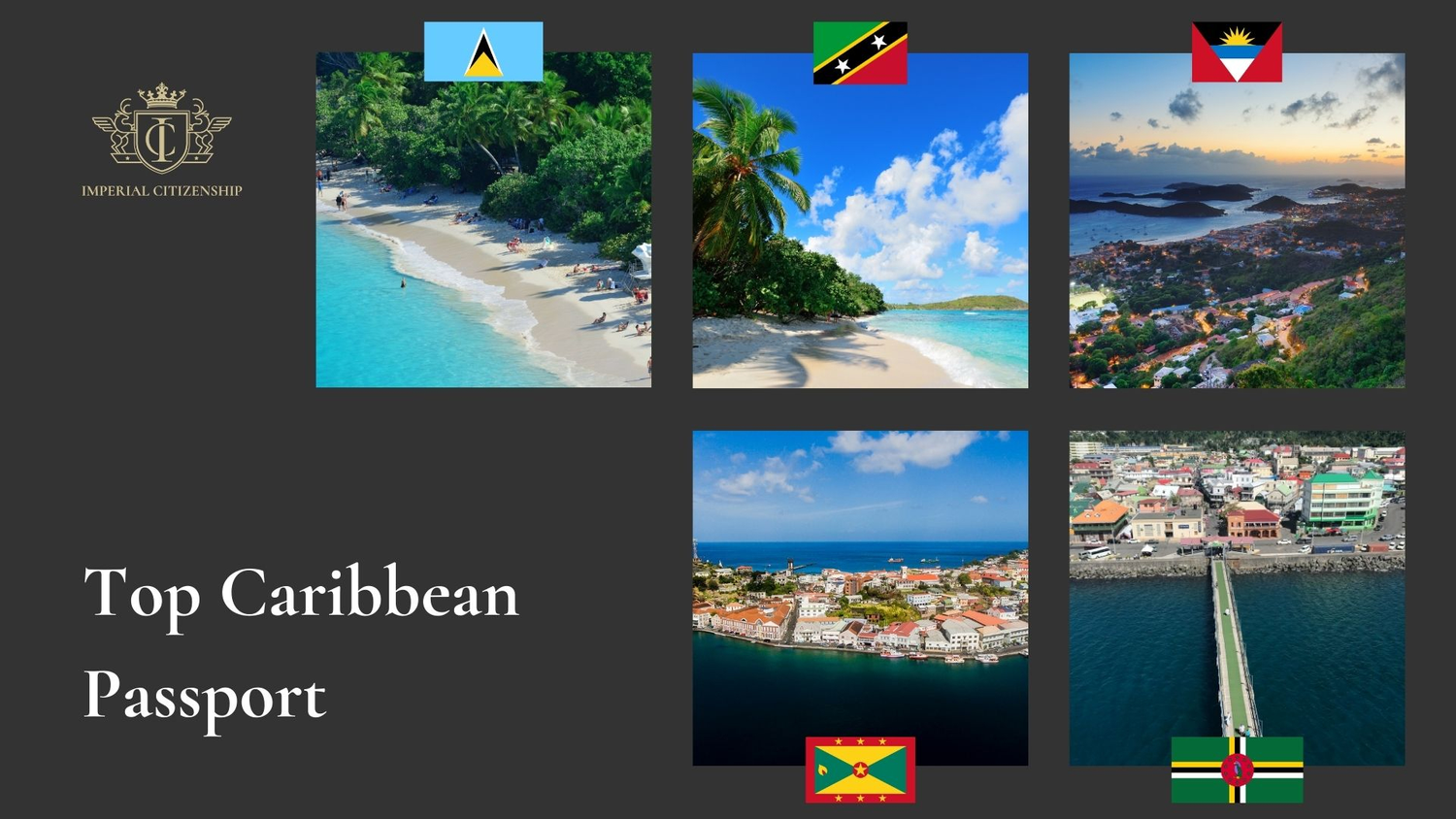
The Caribbean region boasts a selection of formidable passports, hailing from countries such as Antigua & Barbuda, St. Kitts & Nevis, St. Lucia, Grenada, and Dominica.
Despite their nations’ smaller size, these Caribbean passports offer impressive mobility scores and a myriad of advantages to their holders. With visa-free access to numerous destinations around the globe, these passports provide their bearers with unparalleled opportunities for international travel and exploration.
Antigua & Barbuda passport holders
The Antigua & Barbuda passport, ranking 27th in 2024, gives access over 150 visa-free destinations. Some of the countries that Antigua & Barbuda passport holders can travel to without a visa include:
- Schengen countries (since 2016)
- Bolivia (since 2019)
- India (since 2019)
- Kosovo (since 2019)
- Russia (since 2019)
The benefits of obtaining an Antigua & Barbuda passport include:
- The ability to apply for an E-2 nonimmigrant visa in the United States, renewable every five years, enabling holders to do business in the US.
- A favorable tax regime, including the possibility of no tax liabilities in the Caribbean.
- Opportunities for investment in real estate and other assets in Europe and the Caribbean, with options for generating rental returns and releasing investments after the term is over.
- The freedom to relocate to Europe or other countries for family security, high-quality education, healthcare, and business opportunities.
St. Kitts & Nevis passport holders
The St. Kitts & Nevis passport is another standout in the Caribbean, offering visa-free or visa-on-arrival access to almost 160 countries and territories. Holders of this passport enjoy visa-free access to:
- the Schengen Area
- United Kingdom
- Russia
- most British Commonwealth countries
Ranked 25th globally in terms of travel freedom the St. Kitts & Nevis passport is a testament to the country’s economic citizenship program, which allows individuals to obtain citizenship through investment in the country’s economy. St. Kitts & Nevis passport holders can often obtain long-term visas to the United States through the country’s membership in the Caribbean Community (CARICOM).
St. Lucia passport holders
The St. Lucia passport allows for visa-free or visa-on-arrival travel to over 145 destinations worldwide as of 2015. St. Lucia passport holders enjoy visa-free access to key areas including the Schengen Zone, the United Kingdom, and most of the Commonwealth nations.
Ranked 32th globally in terms of travel freedom, the St. Lucia passport is a testament to the island nation’s growing economic stability and strategic diplomatic relationships. St. Lucia’s Citizenship by Investment Program enables individuals to obtain a passport through various investment options, such as real estate, government bonds, or a national economic fund.
The passport provides opportunities for business expansion and access to international markets due to its wide visa-free access.
Grenada Passport holders
The Grenada passport offers a multitude of advantages for its holders, positioning it as a coveted choice among passports of the world. With Grenada citizenship, passport holders enjoy visa-free or visa-on-arrival access to over 140 countries, spanning continents and regions across the globe. Notable destinations include:
- South Korea
- France
- Germany
- Italy
- Palestinian Territory.
Additionally, Grenada imposes no restrictions on dual citizenship, enabling passport holders to maintain citizenship from multiple countries simultaneously. This flexibility enhances global mobility and offers diverse lifestyle options for citizens.The Grenada Citizenship by Investment Program is an example when a swift pathway to obtaining a second passport, granting visa-free access to numerous destinations globally.
With its array of benefits and global recognition, the Grenada passport stands out as one of the world’s most powerful passports, providing unparalleled access and opportunities for its holders.
Dominica Passport holders
Last but certainly not least, holding a Dominica passport bestows upon individuals an extraordinary level of global mobility. Situated in the heart of the Caribbean, the Commonwealth of Dominica, renowned for its breathtaking natural beauty, initiated its citizenship by investment program in 1993 to catalyze investment into its vibrant economy. As a former British colony and a proud member of esteemed international organizations such as the Commonwealth of Nations, the United Nations, the Organization of American States, CARICOM, among others, Dominica enjoys a robust presence on the global stage.
Dominica proudly embraces a policy of no restrictions on dual citizenship, providing individuals with the freedom to maintain multiple citizenships without limitation. Additionally, the nation’s Citizenship by Investment Program stands as one of the most accessible and streamlined options globally, making it a magnet for investors from diverse corners of the world.
The Role of Economic Power in Passport Rankings
Passport rankings are significantly influenced by economic strength. A higher GDP per capita correlates with more potent passports that provide their citizens with access to more visa-free destinations. This is evident when observing countries like Saint Kitts & Nevis or Antigua & Barbuda, which, despite having smaller economies, possess relatively strong passports. The influence of global GDP on passport rankings further highlights the importance of economic strength in determining visa-free access.
Visa-free travel not only increases the economic and international competitiveness of a nation but also enhances benefits such as trade, tourism, and investment. Economically developed, stable, and democratic nations offer extensive visa-free travel, reducing risks of illegal immigration and attracting foreign partnerships.
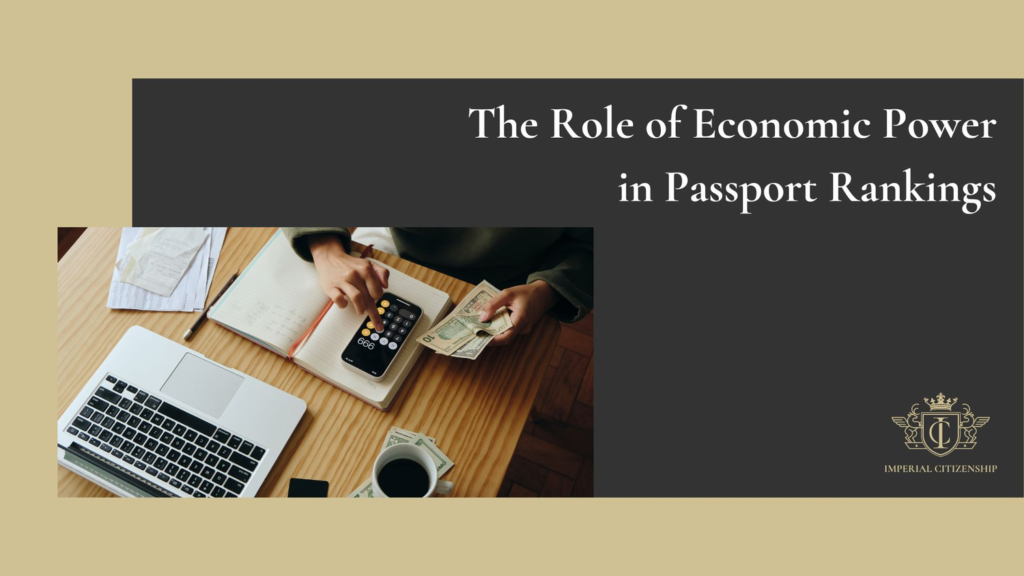
Future Trends in Passport Power and Global Mobility
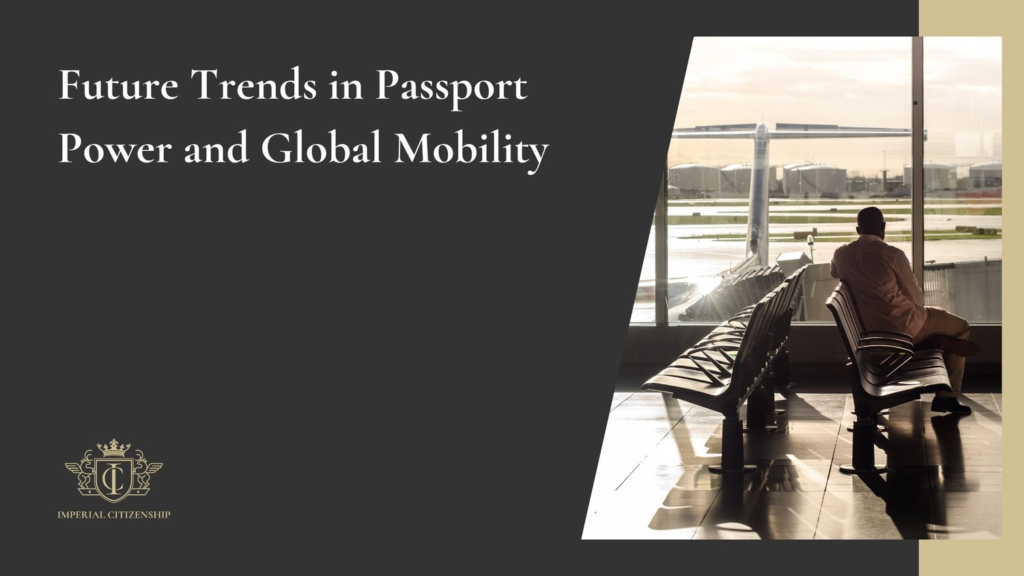
Looking ahead, it is anticipated that future trends in passport power and global mobility will be heavily influenced by diplomatic relations and foreign policy decisions. These factors wield considerable influence over passport power, as they can either bolster or restrict visa-free travel opportunities for the citizens of a country. Notably, regions like the Middle East have witnessed improvements in passport strength, exemplified by countries such as Jordan, Egypt, and the Palestinian Territory, which have gained enhanced access to prominent areas like Europe’s Schengen Area through diplomatic initiatives.
An emerging trend in global visa policy is the growing openness observed among the majority of countries from 2018 to 2023. This shift towards increased openness signals a post-pandemic era characterized by a sustained push towards greater global mobility. Such developments hint at a future where travel is poised to become more accessible and streamlined, offering promising prospects for individuals worldwide.
Tips for Enhancing Your Passport’s Power
For individuals looking to enhance the power of their passport, there are several strategies to consider. One effective approach is pursuing dual citizenship, a status that can significantly expand global mobility by granting visa-free access to a broader array of countries. However, it’s crucial for applicants to verify that their home country permits dual citizenship to avoid potential complications or loss of their original citizenship status.
Another avenue to explore is Citizenship by Investment (CBI) programs, offering a pathway to acquiring a second passport through investment in a host country’s economy or governmental initiatives. Costs associated with obtaining a second passport via CBI programs vary widely, ranging from tens of thousands to hundreds of thousands of dollars. Legal prerequisites for securing a second passport encompass residency mandates, investment criteria, and comprehensive background evaluations. Consequently, it’s imperative to carefully assess the implications of acquiring a second passport on one’s tax obligations and seek guidance from experts like Imperial Citizenship, a renowned leader in residence and citizenship by investment solutions.

Summary
Passport power is influenced by a combination of factors, including political stability, diplomatic relations, and socioeconomic conditions. Understanding these factors can help individuals and governments assess the global mobility and accessibility offered by different passports around the world.
The power of a passport lies in its ability to unlock global mobility, providing its holder with an array of travel, business, and personal opportunities. Whether wchich country you choose: a European passport like Malta or Austria, or a Caribbean passport like Antigua & Barbuda or St. Kitts & Nevis, your passport power can be a gateway to the world. With the right knowledge and strategies, such as obtaining dual citizenship or participating in Citizenship by Investment Programs, you can enhance your global mobility and embrace a world of possibilities.
Frequently Asked Questions
What is a purple passport?
A purple passport is a limited-validity document issued in special circumstances, such as urgent situations overseas, with a shorter period of validity, typically one year from the date of issue. It can be exchanged for a full-term passport.
What are the most powerful passports in 2024?
In 2024, the most powerful passports include those of Malta, Austria, and certain Caribbean countries like Saint Kitts & Nevis. These passports offer strong visa-free access to numerous countries.
What factors influence passport power?
Political stability, economic stability, diplomatic relationships, and overall stability are the key factors that influence passport power. These elements play a significant role in determining the strength of a passport.
